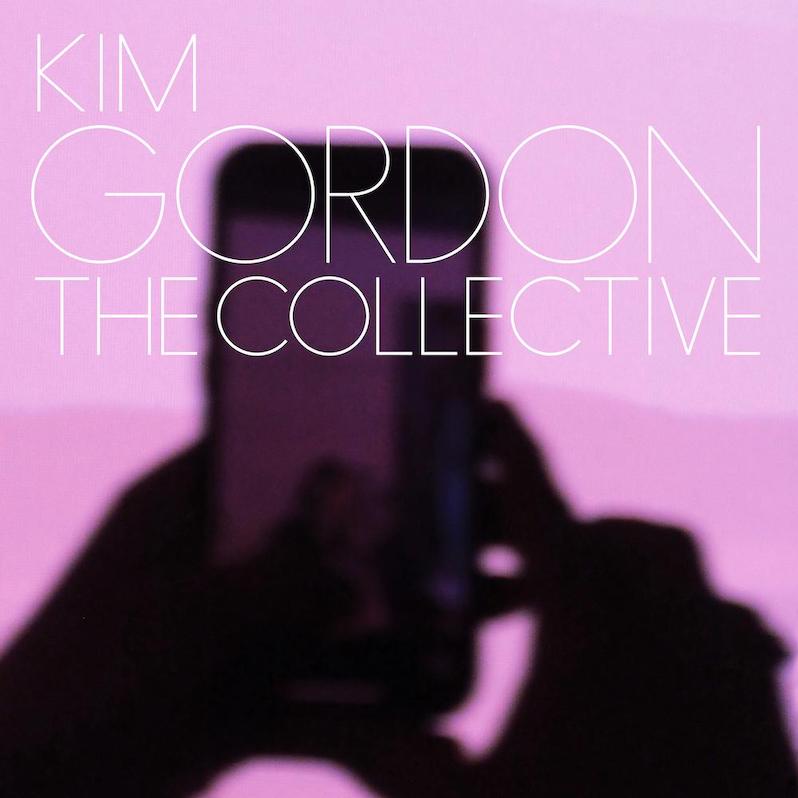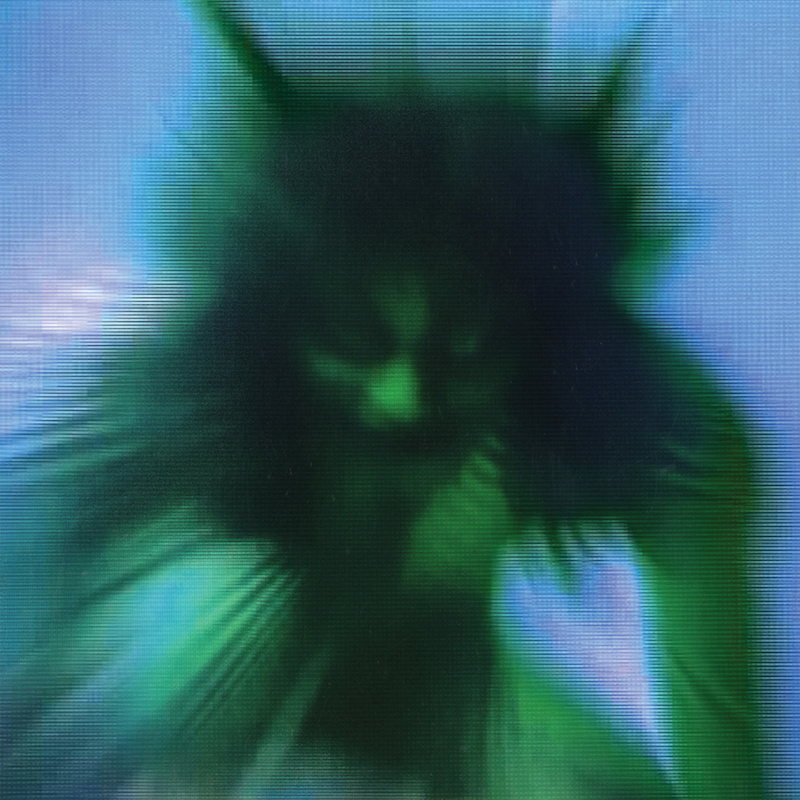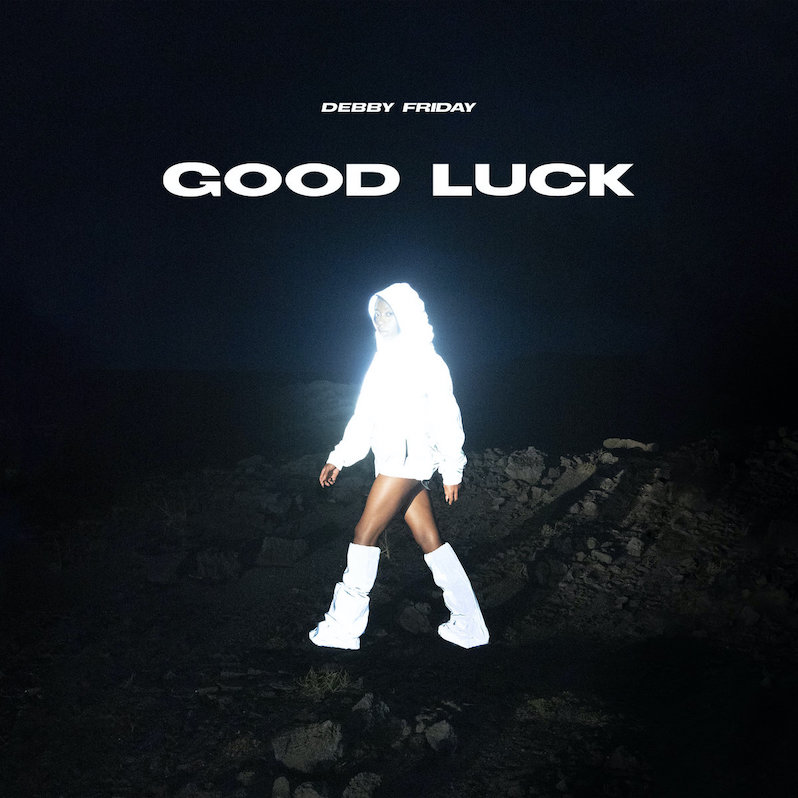Kim Gordon – The Collective

Kim Gordon‘s made a lot of music that throttles and cuts deep, often leaving an impact through a message left undeciphered or demanding on the part of the listener an acrobatic crawl beneath the prickly surface. “Murdered Out,” her debut single as a solo artist released five years after the end of Sonic Youth and following her debut in experimental duo Body/Head, is just such a song—abrasive, dark, oozing with menace and lyrics about cars coated in black-matte spray. What it means is as opaque as the textured pigment it refers to, but its intense, percussively punishing sensibility—which inevitably guided the direction of her strange and experimental debut album No Home Record—offered assurance that the veteran artist had neither toned down her cacophonous ways nor was she all that interested in creating something that adhered to expectations, least of all her own. “So much for preconceived ideas,” she said back in 2019.
In much the same way that Gordon’s prior recordings provided only the loosest tether to No Home Record, the same can be said of the connection between that record and her sophomore solo album, The Collective. That much was apparent from the release of “BYE BYE,” the album’s first single, which juxtaposes distorted, blown-out trap beats against a list of items to pack for a trip: “Hoodie, toothpaste, brush, foundation/Contact solution, mascara, lip mask, eye mask.” It’s aesthetically far afield from most everything Kim Gordon’s done before, to the extent that Pitchfork actually named it their rap song of the day, but it also works, surprisingly or not. Gordon’s willingness to take risks and untouchable levels of cool are, after all, intertwined.
To call The Collective “Kim Gordon’s trap record” is both an oversimplification and only a small piece of the puzzle. After the first couple of tracks, that approach gives way toward various other permutations of punishing drum-machine percussion and applications of noise beneath Gordon’s sing-speak delivery, approaching something more like industrial than contemporary hip-hop (and where they meet, industrial rap). It’s a more cacophonous extension of Gordon’s collaboration with producer Justin Raisen on No Home Record—or for that matter early Sonic Youth noise nightmares like “Flower” or “Pacific Coast Highway”—pushing every extreme in their collective arsenal in an effort to capture “the absolute craziness I feel around me right now,” as Gordon put it in a statement.
Chaos and anxiety are in ample supply throughout The Collective, as is a sense of playful experimentation. Amid the throbbing drum-machine claps of “I Don’t Miss My Mind,” Gordon drifts between background and foreground, in conversation with her own inner monologue in an effect that feels like a kind of psychedelic dissociation. Halfway through the song, everything pauses briefly as she commands, “Fuck It up!“, only to right her course in its final seconds: “Don’t fuck it up.” Gordon also takes down an image of a toxic male avatar in the grinding din of “I’m a Man,” her beat-poetry verses dripping with humor and bile through lines like “So what if I like the big truck? Giddy up, giddy up.”
The sequence of tracks on The Collective represents a kind of escalation from relatively minimal if harsh sounds toward those that gradually feel more like sensory hallucinations. “Psychedelic Orgasm” lives up to its title, disorienting and surrealistic but thoroughly satisfying, Gordon dropping snippets of images about peeling potatoes against a dense array of distorted but otherwise hard to identify sheets of sound. Though “Shelf Warmer” revisits the 808 snap that opens the record, it drips with a more insidious sense of menace, eerie drones creeping into frame like blood trickling down walls. And in its final two songs, “The Believers” and “Dream Dollar,” The Collective makes its final transformation into a full-blown industrial rock climax—heavy, terrifying, and powerful.
I saw Gordon give a lecture at a music conference in San Diego back in 2013 and she said that Sonic Youth’s main objective when they formed was “disruption.” Four decades later, that hasn’t changed; Gordon cites that very concept as one of her aims with this record, along with being bold enough to follow an idea despite not knowing where it leads. Even well into the experience of listening to The Collective, there’s a disorientation about it that only serves to perpetuate that unknowability, a constant that presents itself in sometimes unsettling but frequently exhilarating ways.
Label: Matador
Year: 2024
Similar Albums:
Kim Gordon : The Collective
Note: When you buy something through our affiliate links, Treble receives a commission. All albums we cover are chosen by our editors and contributors.
Jeff Terich is the founder and editor of Treble. He's been writing about music for 20 years and has been published at American Songwriter, Bandcamp Daily, Reverb, Spin, Stereogum, uDiscoverMusic, VinylMePlease and some others that he's forgetting right now. He's still not tired of it.




